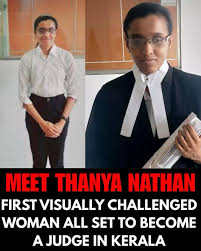D.K. Seth, J.@mdashThe Institution was initially up to Class Xth having 20 Sections. By the subsequent sanction, it was upgraded to Intermediate College and Classes XIth and XIIth were permitted to be opened. From time to time, the number of Sections whereof were increased and ultimately by successive order the number of Sections have been increased from 20 to 26. It is stated in paragraph No. 9 that there Is only one teacher in Hindi and in all there are 8 Sections in the Intermediate section. The Petitioner urges that he is teaching in Intermediate section since 1986 as Lecturer and has been teaching the subject alone, therefore, he is entitled to promotion to the post of Lecturer from the post of L. T. Grade teacher being his substantive post. Despite his representation, he has not been granted promotion neither he has been given the scale of Lecturer.
2. Shri S. P. Pandey, learned Counsel for the Petitioner relying on the definition of ''teacher'' in Clause (e) of Section 2 of the U.P. High Schools and Intermediate Colleges (Payment of Salaries of Teachers and other Employees) Act, 1971 contended that even a person who is employed in fulfilment of the conditions of recognition of the institution or lis recognition in a new subject or for a higher class or as a result of the opening with the approval of the Inspector of a new section in an existing class conies within the category of teacher''. By reason of said definition, the Management of the Institution directed the Petitioner to teach in Higher Secondary section. Therefore, a post having been created and Petitioner being eligible, he is entitled to promotion and to all consequential benefits thereof.
3. Learned standing counsel Shri Sabhajeet Yadav, on the other hand, contended that unless a post is created, there is no scope for the post of Lecturer. He points out the condition laid down for the grant of recognition which is Annexure 1 to the writ petition that the expenditure for conducting the new class is to be borne by the Institution itself. He wanted to interpret the said condition that even the payment of salary of the teacher required to teach in the new class is to be borne by the institution.
4. Whereas learned Counsel for the Petitioner Mr. Pandey interprets the said condition to mean that the expenditure required for conducting the class meaning thereby provisions of the class rooms, etc. are to be borne by the school authority. It cannot mean that payment of salary of the teacher is to be borne by the Institution when the Institution is covered under the Payment of Salaries Act.
5. When sanction is given for opening a new class or subject, it is implied that a post is created by reasons of recognition of new subject or new section. If no such post is created, then the recognition should be meaningless. The very definition of teacher defined in Section 2(e) which includes a person employed in fulfilment of such grant of recognition clearly indicates such an interpretation. Thus, a person employed in fulfilment of the condition for recognition entitles him to receive salary by reason of the definition of teacher. The condition that the school has to bear the expenses does not include the salary of a teacher. It relates to the expenses other than the salary of the teacher, viz., provision for class room, furniture and other necessary expenses required to open and continue with the class in new subject or section. Inasmuch as the said condition cannot override the express provision of law. At the same time, the said condition is an executive direction which in no manner can supersede the legal provision. Therefore, I am unable to accept the contention of Mr. Yadav that the payment of salary is also to be borne by the Institution itself.
6. Admittedly, there were 20 sections some time in 1989. But after the recognition, the total number of section has been increased to 26. Out of the six increased Section four has been increased in Class XIth and XIIth. The ratio of the increase in the higher secondary section is, therefore, considerable. As has been pointed out in the writ petition that there is only one teacher in Hindi who is carrying out the teaching in Hindi in the higher secondary section, namely, the Petitioner. It is all the more necessary that he may be promoted to the said post if found suitable and otherwise eligible for such promotion. By reason of the fact and in view of the definition of the teacher in clause 2 (e) of the Act, 1971, by implication, the post is being created. In my opinion, there is substance in the submission of Mr. Pandey as has been sought to be contended by him.
7. The Respondent, therefore, shall consider the case of the Petitioner having regard to purpose and the object for which new section has been opened and the number of teachers available in Hindi in the school and all the other materials as necessary to be taken into account for the purpose of giving promotion to the Petitioner in the light of the observation made above from the date on which the Respondent finds justified. Such consideration is to be effected within a period of 8 weeks if possible from the date a certified copy of this order is produced before the concerned Respondent.
8. The writ petition is thus, allowed. There will be no order as to costs.

